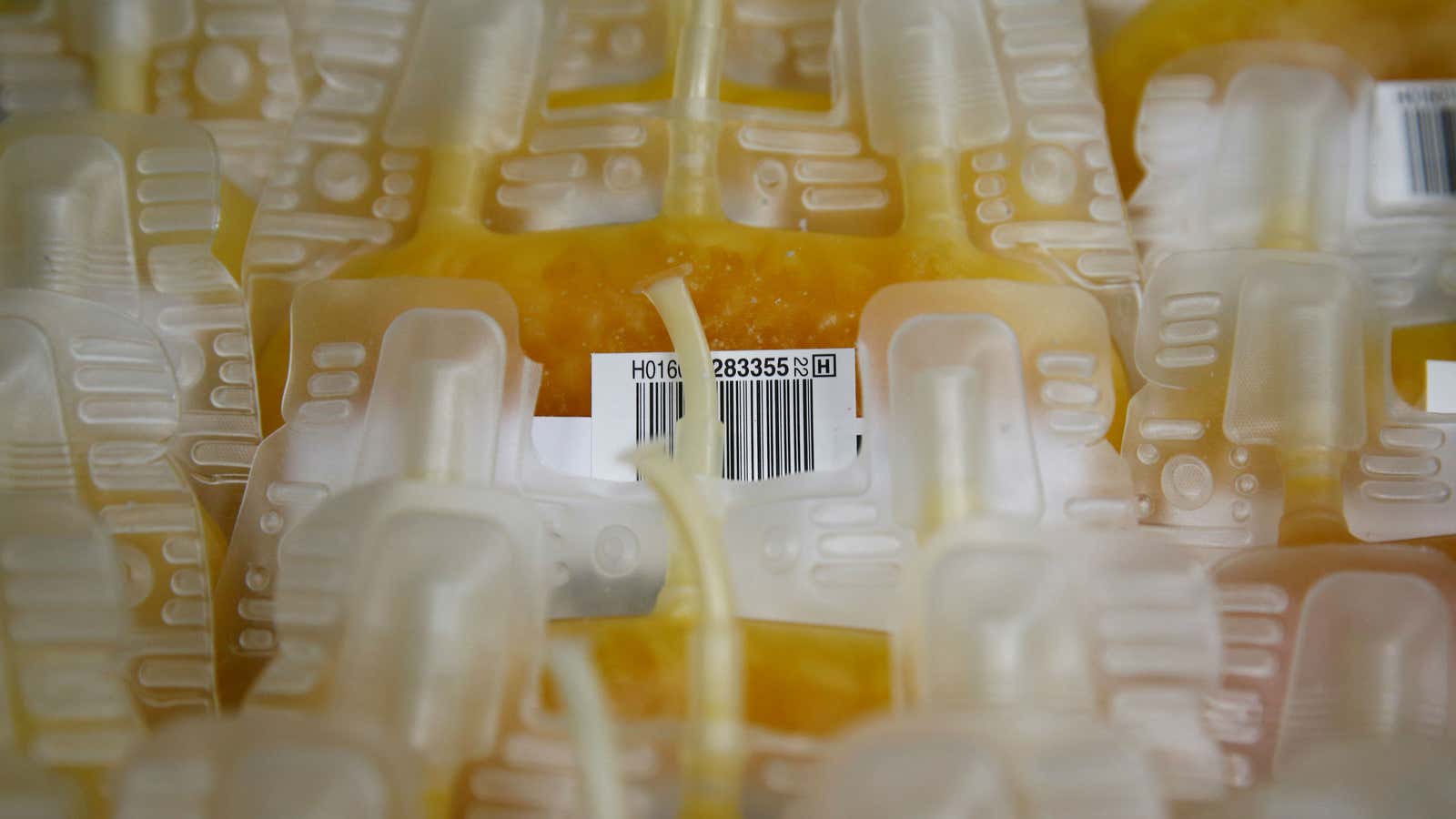If you’re looking for a sperm donation in Canada, there’s a good chance you’ll wind up with American semen.
That’s because a piece of legislation published in 2004 called the Assisted Human Reproduction Act makes it illegal to pay any sperm (or egg) donors in Canada. Canada has been suffering a massive sperm shortage for years now, and the country imports most of its sperm from the US.
“Canada used to have enough men voluntarily giving their sperm,” says Peter Jaworski, a business ethicist (and Canadian) at Georgetown University. Without compensation, though, the vast majority of potential sperm donors in Canada aren’t showing up. “Now there’s anywhere between 30 and 70 men that donate sperm” in the whole country, he says. These men likely visit a handful of sperm banks located in Toronto.
In the US, compensation is legal, and even lucrative. One of the largest sperm donation systems in the country, the Northwest Cyrobank, pays sperm donors up to $1,000 per month for donations two or three times a week, provided they meet certain requirements like being relatively tall and not overweight. The same is true (paywall) in most European countries.
Canada’s decision, Jaworski says, is probably due to some outdated ethical concerns. Sperm donation is what economists call a “repugnant market”: an area where there are both willing buyers and sellers, but a watchful third party is opposed to the transaction for some reason. It falls into the same category as sex work.
There are a few widely-cited arguments for why sperm donation is a repugnant market. First, there’s the idea that if you pay people for any kind of donation (or other acts of kindness), you change the kind of people who are willing to donate. “Economists call it ‘crowding out,'” Jaworski says. “If you introduce an incentive, there are cases where the incentive will crowd out the altruistic impulse.” In other words, people who wanted to donate any sort of tissue from the goodness of their hearts may not want to do it if that act-of-kindness part is taken out of the equation.
Second, some argue that paying people for donations may mean that only those who are desperate for cash would choose to, which could be exploitative. Although semen is a renewable resource for men, it does take some time: several trips per week and the time spend on accompanying paperwork, like filing reimbursements for travel costs. Other reproductive donations, like eggs from women, are more invasive for the donor and detract from a limited supply.
Jaworski thinks that these arguments against paid tissue donations don’t hold up particularly well. For one thing, the fact that Canada still chooses to import bodily fluids from the US, where there are paid donors for semen and plasma (Canadians also aren’t allowed to receive payment for plasma donation), suggests that paid donations are safe. And as for the ethical concerns, well, regardless of someone’s motivation for giving plasma or semen, they’re still helping someone in need, Jaworski says. Furthermore, taking a potential source of income away from someone who needs money doesn’t exactly help them.
“What Canada should do is legalize compensation for renewable bodily fluids in our own country,” Jaworski wrote in a recent opinion piece for USA Today. “It would be the morally right thing to do. It would help make and save more lives, without harming anybody.”
Correction: An earlier version of this article said that Peter Jaworski was an economist; he’s actually a business ethicist.
